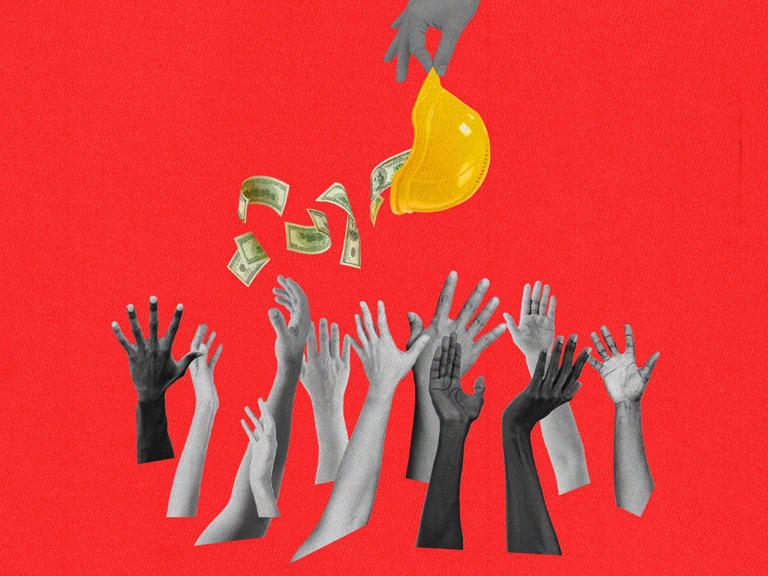Across the United States, cities and states are experimenting with guaranteed basic income programs, providing monthly checks to individuals in need. This approach is garnering significant attention, as it offers a direct method to alleviate financial stress and address economic inequalities. However, there’s an emerging discussion about an alternative that could potentially offer more long-term benefits: universal basic employment (UBE).
The concept of UBE is essentially a public job guarantee, providing employment opportunities regardless of economic conditions. Pavlina Tcherneva, an economics professor at Bard College and a proponent of UBE, argues that such a program would provide a safety net similar to health insurance, ensuring job security even in economic downturns. Given the recent increase in the unemployment rate to 4.3%, UBE might serve as a buffer, offering stability in uncertain economic times.
Many experts believe that UBE could be a more effective solution than guaranteed basic income. The idea is to not only provide financial support but also to offer meaningful work, which can have profound benefits for families, communities, and the economy. UBE proponents argue that having a job can lead to longer-lasting improvements in financial stability, social inclusion, and personal well-being.
The first UBE pilot program in the U.S. is set to launch in Cleveland in 2026. This program will offer 100 participants guaranteed jobs with a salary of $50,000 per year for three years. The goal is to partner with local public and private employers to create jobs that support the community and stimulate the local economy. The program aims to address issues such as employee turnover and job satisfaction, ultimately contributing to a more stable and engaged workforce.
Internationally, UBE has seen various implementations. For example, Austria’s pilot program began in 2020, offering guaranteed paid work to long-term unemployed residents. The results have been promising, with significant reductions in unemployment and improvements in participants’ financial security and mental health. Similar programs have been tested in countries like India, Argentina, and South Africa, demonstrating that UBE can stabilize local economies and address social challenges.
In contrast, guaranteed basic income programs, which provide regular payments without requiring work, have been widely debated. Critics argue that UBI could disincentivize work and increase taxes. UBE, by requiring participants to work for their wages, might address these concerns while still providing the security and stability that many need.
The discussion around UBE versus UBI highlights the potential benefits of integrating work with financial support. As UBE programs continue to gain traction in various parts of the world, the hope is that they can offer a more sustainable and impactful solution to economic insecurity and unemployment.
As the U.S. considers its approach to addressing economic challenges, the success of UBE programs abroad and the upcoming pilot in Cleveland could provide valuable insights into how such policies might be implemented on a larger scale.
